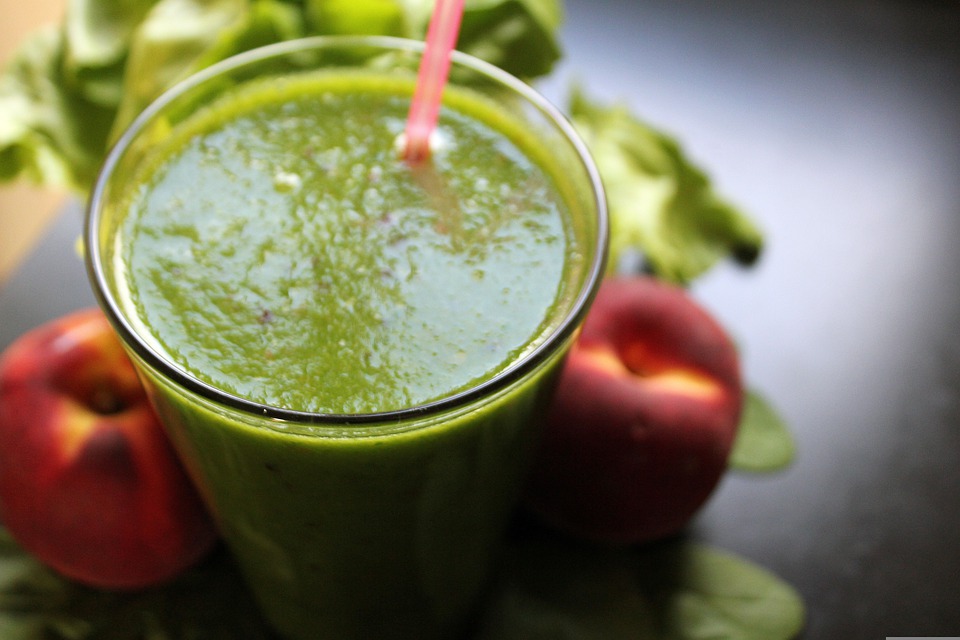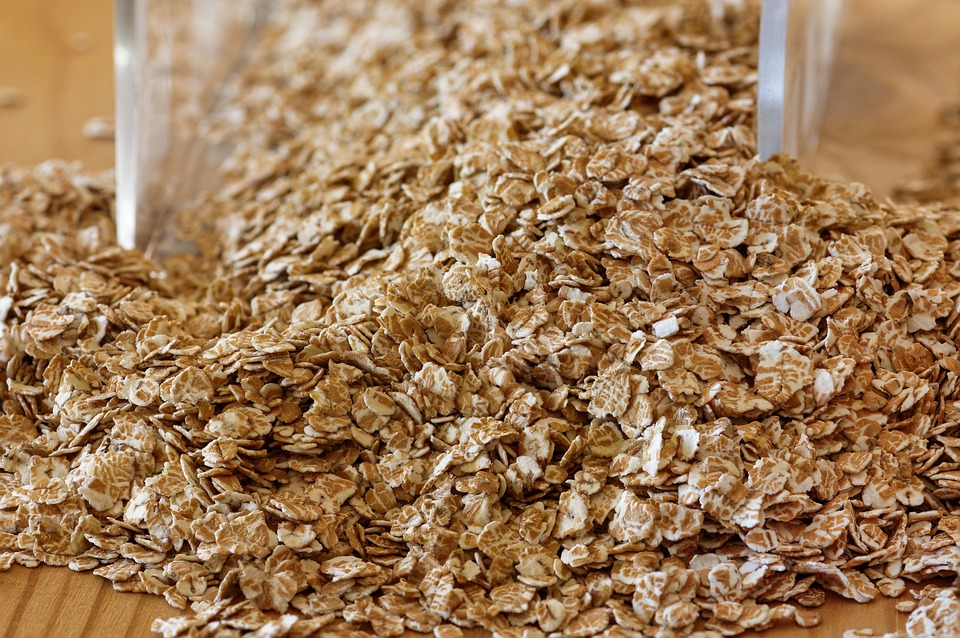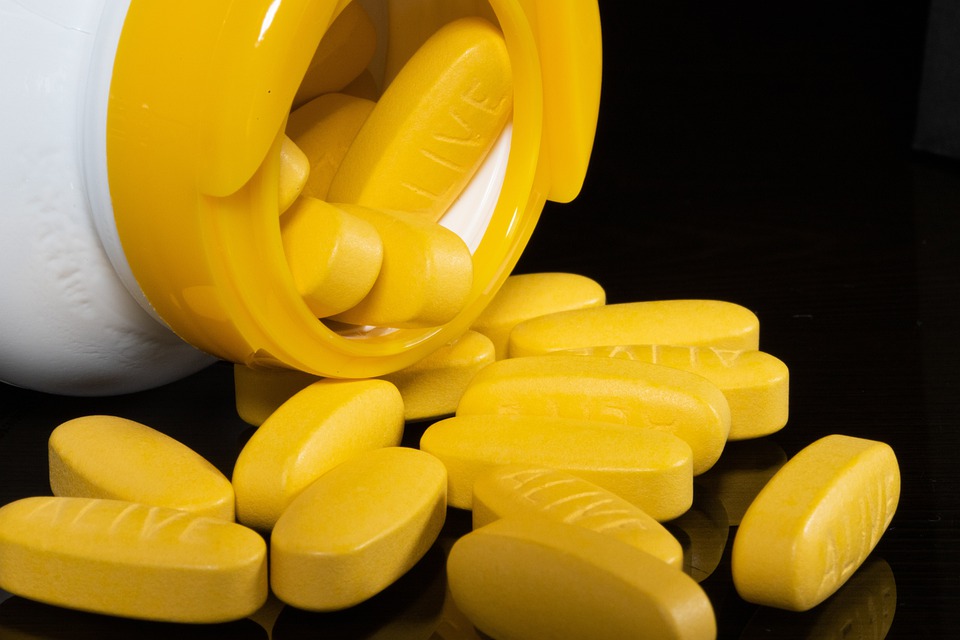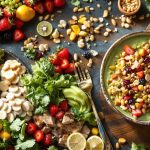
Eating after a workout is key to muscle repair and maintaining peak performance. But not all restaurant and commercial foods deliver on their promise to help with muscle growth and recovery. The best post-workout foods are those that contain carbs and protein, says sports dietitian Kate McGowan.
McGowan highlights the importance of consuming carbohydrates and protein after exercise in order to restore glycogen levels and repair muscle tissue.
Post-workout electrolytes such as sodium, magnesium, and potassium may also be beneficial in replacing minerals lost in sweat. Of these, sodium is the most important.
It’s important to look for carbohydrates, protein, and electrolytes (especially sodium) in a post-workout food or supplement. If you’re choosing a supplement, we recommend selecting one that’s third-party verified. When choosing foods and supplements, it’s important to prioritize flavor.
Start with Calculating Protein Needs
Can you consume too much protein? Yes, if you eat a lot of it at one time. Some people used to think that a high protein intake could harm your kidneys, but studies have shown that this isn’t true. In fact, if you have healthy kidneys, you can usually eat more than 2.0 grams of protein per kilogram of body weight without any problems.
The main problem with too much protein is that your body can’t use it and the extra will turn into sugar and then body fat.
To calculate the amount of protein in your recovery shake, start by converting your weight from pounds to kilograms. To do this, divide your weight in pounds by 2.2. Once you have your weight in kilograms, multiply that number by 0.3. This will give you a range of 15-30 grams of protein, which is what you should aim for.
You need to memorize this number so that you can figure out how much protein to add to your shake from tofu, nuts, etc. The labels on these products may not be accurate, so be careful when scooping or measuring.
Calculating Carbohydrate (CHO) Requirements
While there are a lot of opinions and unique diets out there, we can say with confidence that athletes usually perform best when they have carbohydrates regularly in their diet. To calculate your needs, start by taking your weight in pounds and dividing by 2.2 to obtain your weight in kilograms. Next, multiply your weight in kilograms by 1.0. This will give you the total amount of carbohydrates that should be in your recovery shake. For most people, this will be between 30 and 90 grams.
Let’s take this one step further.
How many grams of carbohydrates you need depends on your sport. Protein intake will usually stay the same, but you may need to change how many carbohydrates you eat based on how long and how intensely you’re playing.
Athletes who participate in less strenuous sports should aim for a 2:1 ratio of protein to carbohydrates, while those who participate in moderate intensity sports should aim for a 3:1 ratio. Ultra-endurance athletes should aim for a 4:1 ratio.
This means that if you are an ultra-endurance racer and you need 15g of protein in your recovery shake, then you will also need 60g of carbohydrates.
I would take 45g of CHO in my recovery shake if I am a soccer, hockey, or cross country athlete.
If I had a light practice, lift, or training session that didn’t require much cardio or played a lower intensity sport like golf, I would multiply 15x 2= 30g of CHO in my recovery shake.
In order to meet your specific post-workout carbohydrate demands, it is best to read the nutrition facts label on the container of your liquid, the package of your fruit, or whatever it is that you are adding to your shake. Remember that your CHO needs will come primarily from fruit, dairy, and starch (potatoes, rice, couscous, etc.).
Although adding juice to your shake is an easy way to get the carbohydrates you need, it’s not the best option. Your immune system benefits from seeing a variety of fruits and vegetables in your shake.
Best Post-Workout Supplements of 2022
Best Overall: Horizon Organic Shelf-Stable 1% Lowfat Chocolate Milk
Horizon Organic Shelf-Stable 1% Lowfat Chocolate Milk is the best choice because the 3:1 carbohydrate to protein ratio has been shown to help with muscle repair and restoring glycogen. Marie Spano, an expert on sports nutrition, says that the combination of carbohydrates and protein in low-fat chocolate milk is perfect for refueling after exercise.
Protein is found in milk naturally, and carbohydrates come from the milk sugar (lactose) as well as some additional sugar that is added. According to Spano, this is a more affordable on-the-go option when compared to supplements.
You can keep Horizon’s organic chocolate milk in your gym bag without refrigerating it. Each carton is 8 ounces.
Horizon’s Lowfat Chocolate Milk contains eight essential vitamins and minerals, including calcium, vitamin D, and vitamin A. Just 8 ounces of Horizon’s Lowfat Chocolate Milk contains 8 grams of protein and 20 percent of the daily value of calcium. Horizon’s Lowfat Chocolate Milk also contains water and 180 milligrams of sodium, which is the most important electrolyte to focus on for rehydration.
Muscle Milk provides the perfect ratio of protein, fats, and carbohydrates to support muscle growth and repair after strenuous exercise. The Genuine Protein Powder Vanilla Crème flavor is a great tasting way to get the nutrients your body needs to recover from a workout.
Muscle Milk’s protein powder has 32 grams of protein per serving, which is good for people who want to build muscle through strength training. The powder has been certified by NSF International as being free of banned substances for sport, meaning that it has been third-party tested for more than 270 banned substances. The powder is made with whey protein isolate and milk protein isolate, and it is also a good source of calcium and vitamins A, C, and D.
While Spano assures athletes that this protein powder tastes great, many athletes will need to add more carbohydrates to their diet in order to meet their needs. Mixing the powder with 100 percent juice is one way to do this.
This protein powder does contain some sodium (135 milligrams), but if you are exercising at higher intensities, are a salty sweater, or are exercising in hot conditions, you might need more salt to replenish lost electrolytes.
This product is best for endurance athletes who are looking for a chocolate sport recovery drink mix.
This product is designed for people who are working out at a high intensity and need to refuel and rehydrate their muscles.
This sports drink has a 4:1 carb to protein ratio, which can help you replenish glycogen stores and repair muscles after a strenuous workout, especially if it was an endurance-training session like a long run or a cycling workout. The main ingredients in this drink are cane sugar, cow’s milk, and cocoa powder, which makes it very similar to chocolate milk.
Skratch Labs Sport Recovery Drink contains lactase, an enzyme that helps with the digestion of lactose, which chocolate milk does not. Therefore, people who are intolerant to lactose may be able to drink this mix without experiencing any symptoms.
Since it contains milk, it also has electrolytes that help with hydration. There are 270 milligrams of sodium, 20 percent of the daily value of calcium, and 8 percent of the daily value of potassium. It also has 10 percent of the daily value of iron. Lastly, it tastes great. You just add water, shake, and drink it.
The best protein bar is the Clif Builders Protein bar in the flavor of chocolate peanut butter.
This protein bar has 20 grams of plant-based protein and 29 grams of carbs. It is made with more protein than the traditional energy bar and is touted as a post-workout recovery snack to aid in muscle repair.
This bar contains a combination of soy protein isolate, cane sugar, and brown rice syrup, providing protein and carbs for post-workout recovery. It also contains a high amount of sodium, which may be beneficial for rebalancing electrolytes after an intense workout.
This Clif bar is a good option for vegetarian and menstruating athletes who may need supplemental iron. It has 20% of the daily value of iron. It is available in multiple flavors and is easy to take with you to the gym.
Best Plant-Based: RX Bar PLANT Protein Bar, Chocolate Chip
The RX Bar PLANT is a protein bar made from a minimal amount of plant-based ingredients, with no added sugar or artificial sweeteners. It contains real peanuts, gluten-free oats, dates, and pea protein, and has 10 grams of protein and 25 grams of carbohydrates to help with muscle recovery. It also has 15 percent of the daily value of iron.
While whey protein has been traditionally seen as the best option, pea protein has been shown to have similar benefits when the levels of branched-chain amino acids are the same. One study that looked at fifteen men who did high-intensity training for eight weeks found that whey and pea protein had similar effects on measures of body composition, muscle thickness, force production, and athletic performance.
It’s important to note that these bars are low in sodium (50 mg per bar) which is great for those watching their sodium intakes, but might not be enough to replenish the sodium lost in sweat for those exercising at moderate or high intensities.
Best Yogurt: Chobani Complete Mixed Berry Vanilla Shake
We’ve found that the Chobani Complete line of products is great for those looking for a higher protein to carbohydrate ratio. In particular, the Chobani Complete Mixed Berry Vanilla Shake is our top pick because it contains a whopping 25 grams of protein. Although the shakes do contain sugar substitutes, they don’t have any added sugar which is a big bonus.
Shakes that contain both carbs and protein are also an excellent source of calcium, with one serving containing 25 percent of the daily value. These shakes also contain three grams of prebiotic fiber, thanks to the addition of chicory root fiber. Combined with the live cultures from the yogurt, these shakes provide both prebiotics and probiotics for gut health.
Best Allergy-Friendly: 88 Acres Banana Bread Protein Bar
If you’re looking for the best post-workout snack and have multiple allergies, 88 Acres has you covered. Their protein bars are made in a dedicated gluten-free and allergy-free facility, so you can enjoy them worry-free.
The bars are made of pumpkin seeds and are mixed with fruit and spices to give them flavor. A single serving has 12 grams of protein and a lot of iron, which is necessary for carrying oxygen to muscles and other parts of the body. Female athletes, especially vegetarians, might not be getting enough iron and could improve their health by eating more iron-rich foods or taking supplements.
The 88 Acres bars are vegan and certified gluten-free. They contain added sugar, but the Banana Bread flavor is lower in added sugar than many other protein bars, with just 4 grams per serving. They are a good anytime snack choice.
If you are not a fan of bananas, you can also pick up the bar in a Dark Chocolate Brownie flavor.
Best Dairy-Free: Over Easy Breakfast Bars
If you want a dairy-free snack to eat after working out, the Over Easy breakfast bars are a great option. We like them because they contain egg whites, which are a source of complete protein, as well as almonds, which provide both protein and unsaturated fats. Each bar has 9 grams of protein and is also a good source of fiber, with 7 grams per serving.
This bar is a low-sodium option with all flavors containing under 100 mg sodium per serving, making it a good choice if you experience significant sweat losses during your workout. If you’re not an apple fan, you can choose from multiple other flavors including Peanut Butter Dark Chocolate, Banana Nut, Peanut Butter, and Toasted Coconut.














